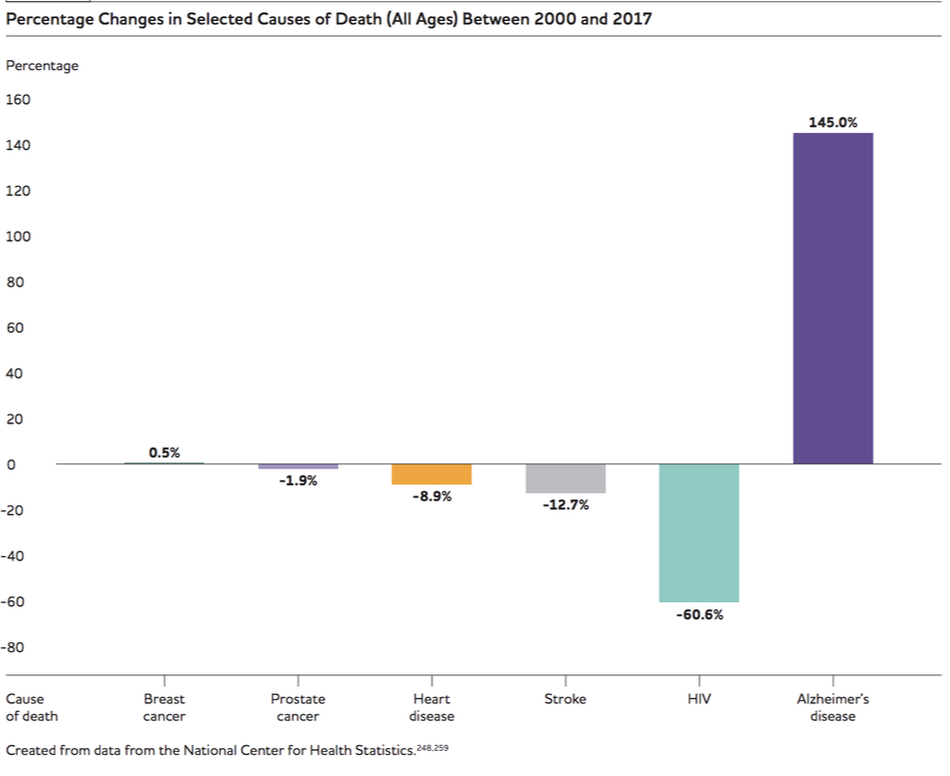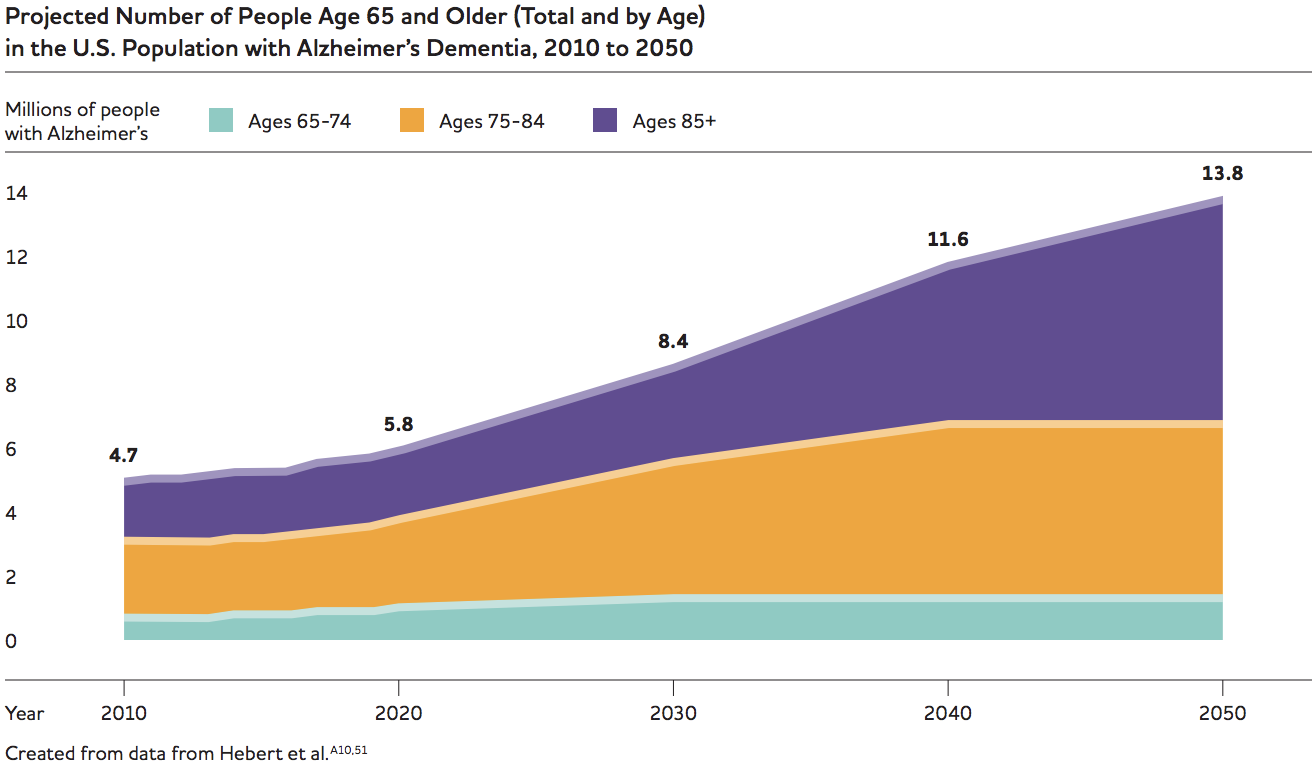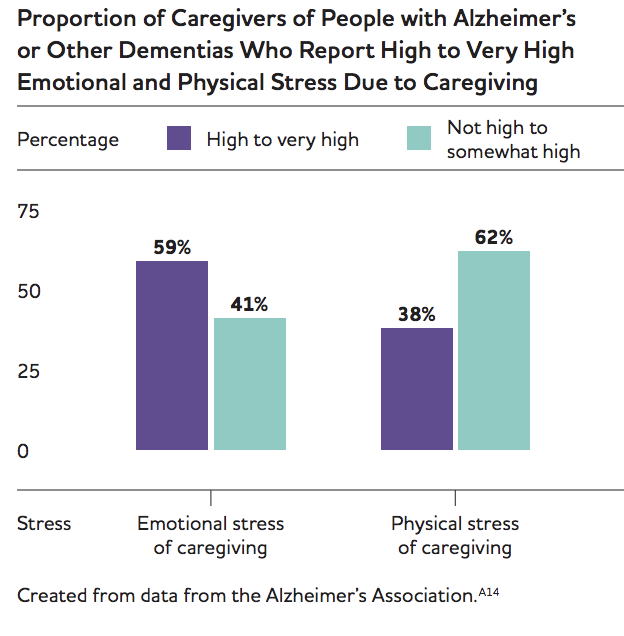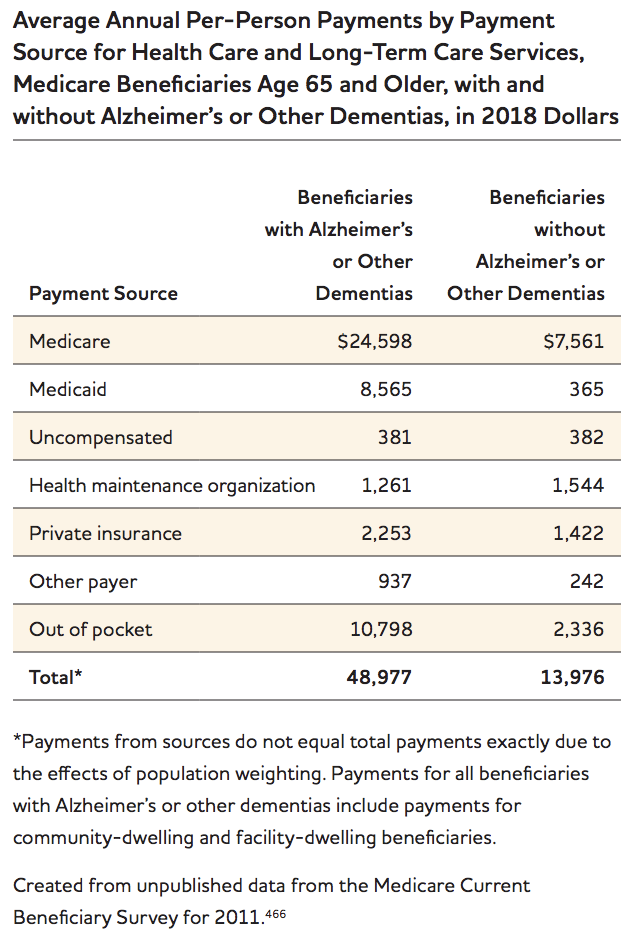Between 2000 and 2017, the United States Alzheimer's mortality rates grew 145% while other leading causes of death plummeted (heart disease decreased by 9%, which is number one). Alzheimer’s is the sixth leading cause of death overall, and the fifth leading cause among those age 65 or older. Someone develops the disease every 65 seconds, and one in three seniors dies from Alzheimer's or another form of dementia.
Sadly, as the populous ages these numbers will skyrocket. Without a cure or the ability to slow down Alzheimer’s progression in the brain, researchers estimate that nearly 14 million US citizens will be diagnosed with the disease by 2050.
Alzheimer’s is an epidemic.
People handle things one of two ways: Proactively or reactively. With the data above in tow, one’s approach to preparation may be the most important decision made for their family. Alzheimer’s is not an isolated disease burdening solely the individual diagnosed. The effects of this disease can encompass and consume everyone in the family - mentally, emotionally, physically, and financially.
“Eighty-three percent of the help provided to older adults in the United States comes from family members, friends or other unpaid caregivers. Nearly half of all caregivers who provide help to older adults do so for someone living with Alzheimer's or another dementia.”
Every day, people shift out of successful lines of work, leave jobs all together, or retire early to be a caregiver.
“More than 18.5 billion hours of informal care were provided by Alzheimer's and other dementia caregivers in 2018, a contribution to the nation valued at nearly $234 billion.” (www.alz.org, 2019)
This disease is costly for our nation.
“In 2019, Alzheimer’s and other dementias will cost the nation $290 billion, including $195 billion in Medicare and Medicaid payments. Unless a treatment to slow, stop or prevent the disease is developed, in 2050, Alzheimer's is projected to cost more than $1.1 trillion (in 2019 dollars). This dramatic rise includes more than four-fold increases both in government spending under Medicare and Medicaid and in out-of-pocket spending.” (www.alz.org, 2019)
The time to plan is yesterday. It is not a matter of IF this disease will impact you or your loved ones, the question is when. Certainly sharing facts and figures creates awareness, but the sting of today is temporary. We need permanent solutions in place for tomorrow.
Start by having a conversation with spouses, siblings, and parents. If a parent has no plan for their future, attempt to create an opportunity for discussion. Listen to their needs. By understanding what an ideal, perfect euphoria looks and feels like to them, whether living life in their own home or a resort style assisted living facility on a beach in Hawai’i, a compromise can then be built where everyone is collectively invested and appreciative together.
The worst place to be is reactive in nature (i.e late to the conversation). The stress induced among partners, between siblings, and from parent to child can be life-altering and traumatic. Consider cortisol, the chemical released in the brain during stress, like pouring gasoline on a fire for those with Alzheimer’s. Research shows that being in familiar locations can help reduce cortisol release and stabilize emotional well-being. Having a plan in place where loved ones are comfortable promotes independence longer for those with dementia.
Part of the discussion should include how technological advances are helping seniors be safer and the freedom to be home longer. Both medical and smart home breakthroughs can provide years of extra in-home monitoring and care. Those with Alzheimer’s visit the hospital two times more than other seniors, and a majority of admissions are from falls. Medical alert systems can save lives! And, smart homes are also becoming popular, from automatic bulbs to vacuums to video doorbell services. The security of our loved ones can alleviate much concern physically and emotionally for caregivers. (Article links embedded!)
We all want to live our days without the burden of a stressful disease consuming our thoughts. One can ignore the oncoming fire swallowing the trees whole and reactively run, or fight with the water hose planted perfectly in place on the ground. When it comes to Alzheimer’s, however, ignoring the issue will consume you and everyone around you.
#EndAlz #Alzheimers #AlzheimersAwareness #BePrepared





 RSS Feed
RSS Feed